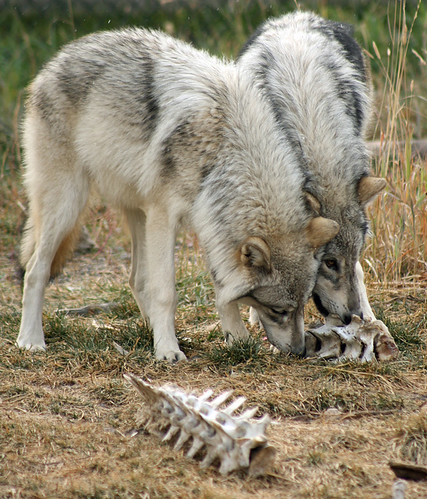 |
| Image © Debs |
You know your place.
I am writing of the institution of monarchy. And it is wrong. Those who support it are wrong, and most of the standard, lazy perceptions of it I have outlined above are wrong. It is desperately, unreconstructedly morally bereft. We should be offended by it. The costs of it run way beyond the financial aspect. It is a relatively new bad idea. It is, but it never had to be, and it doesn’t have to be ever again. Moreover, the disparity of ‘station’ that it embodies and symbolises is an affront not only to what it means to be human, but also to what it means to be a person.
What does it really represent? Hatred, inequality, discrimination, racism, sectarianism, elitism, substratism.
‘It’s like wolves,’ said the artist friend-of-a-friend, who I met during an up-until-then pleasant evening out. ‘There’s always a leader.’ What, I asked, could he possibly mean by that? The queen is the leader of our wolf pack? We can reason; we can choose; we can communicate at high levels of abstraction; we have art, music, literature, science, mathematics; we are capable of setting up equitable systems of governance... . But you compare us to a wolf pack... as a way of justifying the institution of monarchy? (I was less eloquent than this.) Was he really appealing to a deeply-misunderstood form of group or natural selection to explain the social phenomenon of monarchy?
By this point, although I had never seen it, I had decided that his art must be dire. A man with such a tenuous grasp of natural and moral philosophy must be a hack. The words of John Lydon rang in my head: ‘Like a terrible artist, you’re using no shadow.’ But where was my use of shadow? Why couldn’t I find the grey areas?
Trying to reason with a royalist is like trying to reason with a unidirectional tennis ball serving machine. They don’t listen, they have no alternative angles, and they keep firing fuzzy projectiles at you faster than you can ready yourself to return them.
Vulpine splatterer balls aside, how can we find a simple way to explain why monarchic systems are immoral? It looks like we’ll have to strip it back to the board, and paint by ethical numbers:
- Are monarchs super-beings?
If yes, in what do their superpowers consist? If no, then in what does their ‘right to rule’ consist?
- If monarchs were in fact
super-beings, would this justify the lavishing upon them of great
wealth and privilege not afforded to ‘ordinary’ beings?
- Conversely, if monarchs are
in fact ‘ordinary’ beings, is there a way conferring great
wealth and privilege upon them and not upon others that does not
constitute discrimination against those others?
- If a monarch is in fact an
ordinary being, is it like the leader of a wolf pack?
If yes, how did ‘nature’ select it to be the leader of the pack? If no, how can we justify giving so many of the scarce resources of the majority to an individual who is not even a pack leader?
- What does a ‘divine’
right to rule consist in? And if it is only a figure of speech –
if there is no direct linkage to God – is there something else
that that a divine right to rule can consist in?
- Can blood be magical?
If it can, where does it come from, and how does it attain its supernatural properties? If it cannot, how can ‘royal blood’ be considered in any way special?
- If a monarch is not a
super-being, is not the leader of a wolf pack, does not have any
‘divine right’, and does not possess magical blood, are there
still reasons why – democratically chosen by no-one – he/she
should be allowed a role in the governance of a democratic
country?
If yes, what are those reasons. If no, why then do we allow this?
- If a monarch cannot be allowed
such a role, are there ways in which he/she can still be a symbolic
‘figurehead’?
If yes, what is represented by this symbol? If no, why should we allow even this.
In his Enquiry Concerning Human Understanding, the Scottish philosopher David Hume said
If there be any suspicion that the course of nature may change, and that the past may be no rule for the future, all experience becomes useless, and can give rise to no inference or conclusion. It is impossible, therefore, that any arguments from experience can prove this resemblance of the past to the future.2Continued support for institutions of monarchy is based upon this mistaken resemblance of the past to the future. The continuity of monarchy is an illusion. It is an experience become useless, and worse than useless. If there is a future worth living in, it will be populated by citizen-persons who will have opportunities to elevate themselves, but who will not connive to set themselves above others by instilling fear, and who will not expect riches and obeisance to be lavished upon them because of supernaturalistic, essentialist notions of ‘divine right’, or ‘birthright’, or ‘royal blood’.
I see no place – in the future of the long now – for kings, queens, princes, or princesses. New diversity is to be welcomed, and such outdated concepts represent the opposite of diversity. In leaving behind these baseless, discriminatory forms of ‘us and them’, we find that there are only persons. It would be best for our new, democratic nation-state of Scotland if there were only persons – citizens – from day one.
1. James
Hughes, Citizen Cyborg: Why Democratic Societies Must Respond to the
Redesigned Human of the Future
(Cambridge, MA: Westview Press, 2004), sec. Siding with the X–Men.
2. David
Hume, An Enquiry Concerning Human Understanding,
Reprinted from the Posthumous edition of 1777 (Oxford: University
College, 1902).
No comments:
Post a Comment